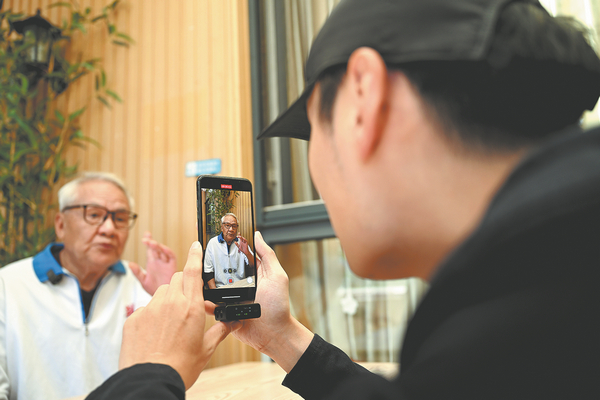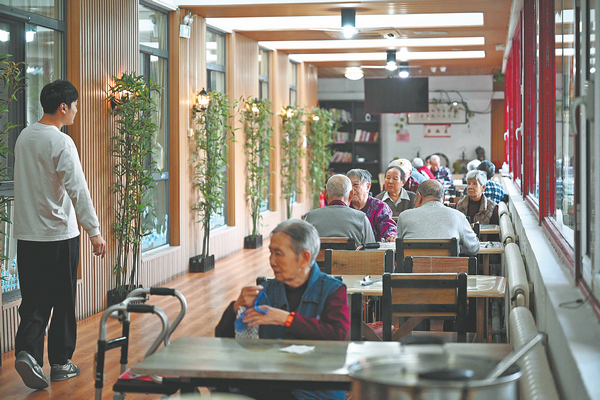

Through casual on-camera conversations, these seniors in Tianjin have showcased the joys of several senior citizens leading retired lives, countering the stereotype of old age being lonely and monotonous.
They are also different from their peers in that they have embraced the internet to impart valuable life lessons to a younger audience grappling with anxiety and societal pressures. One individual who ventured into this uncharted territory is Geng Fengru, known by the nickname "Grandma Alice" in multiple clips.
After her superannuation, this former rubber factory worker got a managerial position at a retirement home.
As she grew accustomed to the private retirement home's working, Geng rose to become its director before finally retiring last year to become a resident of Chunxuanmao.

Unlike many Chinese seniors who opt to spend their twilight years close to family, the 73-year-old Geng stands as a steadfast proponent of institutional care services.
She firmly champions the belief that the communal activities, healthcare support and entertainment offerings found in retirement homes play a pivotal role in enhancing the overall well-being of elderly individuals.
China has in recent years worked to shore up the supply of eldercare services as the nation rapidly ages. Figures from the National Health Commission show that the number of Chinese people aged 60 and above will surpass 300 million by next year — accounting for 20 percent of the population. Around 2035, the age group is projected to exceed 400 million, comprising over 30 percent of the population.
The demographic change, intertwined with a higher percentage of single-child families, has made traditional reliance on the family for eldercare unsustainable and created a huge demand for caregivers.
On multiple occasions, officials have stressed that caregiving, which is often stigmatized due to its labor-intensive nature, is a respectable profession that can relieve the worries of society and families.